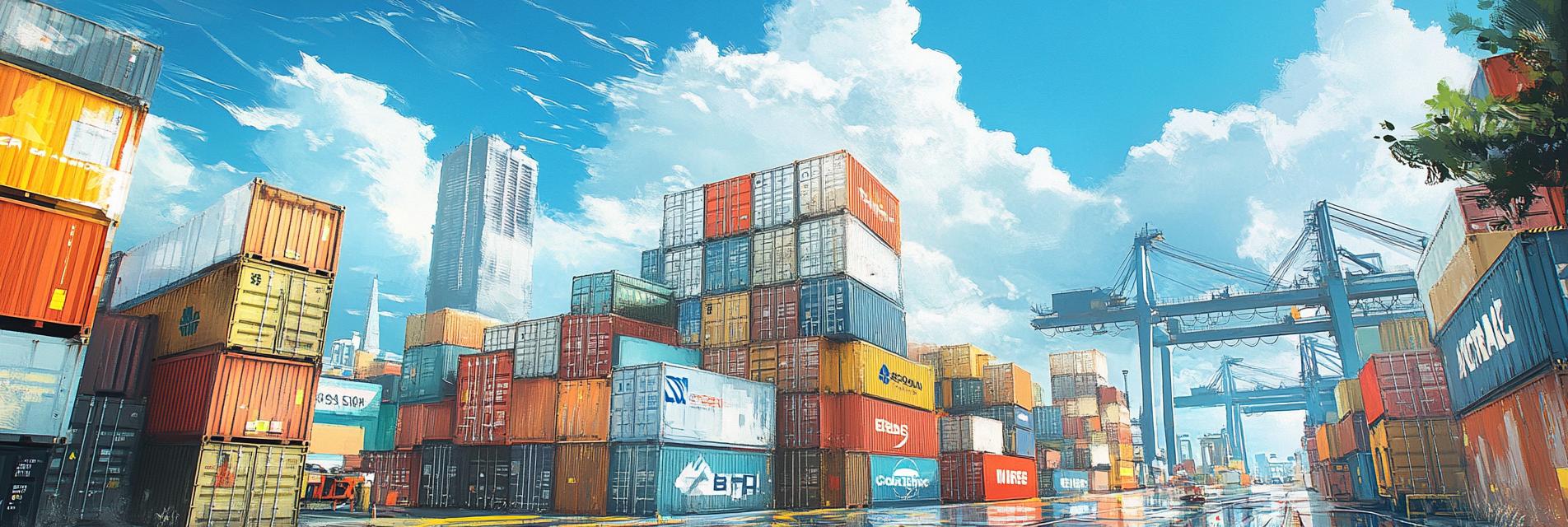 400-076-6558智领未来,外贸超级营销员
400-076-6558智领未来,外贸超级营销员
 400-076-6558智领未来,外贸超级营销员
400-076-6558智领未来,外贸超级营销员

For new players in the international trade arena, the choice of a reliable logistics provider can be a game - changer. It's not just about getting goods from point A to point B; it's about streamlining the supply chain, reducing costs, and minimizing risks. In fact, studies show that well - managed logistics can contribute up to 15% of a company's total cost savings.
Let's start by exploring the main transportation modes: sea, air, and land.
Sea freight is the most common choice for large - volume and less - urgent shipments. It accounts for approximately 80% of global trade by volume. The cost per unit for sea freight is relatively low, making it ideal for bulky goods such as furniture, raw materials, and large machinery. However, it has a longer transit time, usually ranging from 15 to 45 days depending on the distance and route.

Air freight is the go - to option for high - value, time - sensitive goods like electronics, pharmaceuticals, and fashion items. Although it is more expensive than sea freight, with costs up to 5 - 10 times higher per unit, it offers a much shorter transit time, typically within 1 - 7 days. According to industry data, about 35% of the world's trade value is transported by air.
Land freight, including road and rail transport, is mainly used for regional trade. It provides flexibility and door - to - door service, which is suitable for short - distance deliveries. For example, in Europe, about 70% of goods are transported by road within the continent. The transit time can vary from a few hours to a few days depending on the distance and traffic conditions.
Selecting the right logistics provider is crucial for the success of your international trade business. Here are some key factors to consider:
Look for a provider with a proven track record of on - time delivery and low damage rates. A reliable provider should have a comprehensive tracking system that allows you to monitor the status of your shipments in real - time. For example, a logistics company with a delivery success rate of over 95% is generally considered reliable.
While price is an important factor, it should not be the only consideration. Compare quotes from different providers, but also take into account the additional services they offer. Sometimes, a slightly higher price can be justified by better service quality and reliability.
A logistics provider with a wide - reaching transport network can ensure that your goods can be delivered to your desired destinations efficiently. For instance, a provider with offices and agents in multiple countries can handle customs clearance and local delivery more smoothly.
Understanding how freight is calculated and the importance of freight insurance can help you control logistics costs and reduce risks.
Freight charges are usually calculated based on the weight, volume, and destination of your goods. For sea freight, it is often charged per container or per cubic meter. Air freight is typically charged per kilogram. You can use online freight calculators provided by logistics companies to get an estimated cost.
Freight insurance protects your goods against loss or damage during transit. It is recommended to purchase insurance, especially for high - value shipments. The insurance premium usually ranges from 0.1% to 1% of the goods' value, depending on the type of goods and the shipping route.
Proper goods packaging and marking, as well as accurate customs documents, are essential for smooth international trade.
Choose appropriate packaging materials to protect your goods from damage during transportation. For example, fragile items should be packed with shock - absorbing materials. The packaging should also be suitable for the chosen transportation mode. For sea freight, the packaging should be able to withstand moisture and rough handling.
Mark your goods clearly with information such as the destination, handling instructions, and the consignee's details. This helps to ensure that your goods are handled correctly and delivered to the right place.
Prepare accurate and complete customs documents, including the commercial invoice, packing list, and bill of lading. Incorrect or incomplete documents can lead to delays in customs clearance and additional costs.
Let's take a look at a real - world example. A furniture manufacturer in China wanted to export its products to the United States. At first, they chose a low - cost logistics provider without fully considering the service quality. As a result, many of their shipments were delayed, and some goods were damaged during transit. After switching to a more reliable provider, they experienced a significant improvement in delivery time and a reduction in damage rates. Their customer satisfaction also increased, leading to more repeat orders.

In summary, choosing a reliable logistics provider, understanding different transportation modes, and paying attention to details such as freight calculation, insurance, packaging, and customs documents are all key to successful international trade. By following the tips and strategies outlined in this article, you can optimize your supply chain, reduce costs, and enhance your competitiveness in the global market.
Ready to take your international trade to the next level? Contact us today to learn more about our professional logistics services and how we can help you streamline your supply chain!
.png?x-oss-process=image/resize,h_100,m_lfit/format,webp)
.png?x-oss-process=image/resize,h_100,m_lfit/format,webp)

.png?x-oss-process=image/resize,h_100,m_lfit/format,webp)
.png?x-oss-process=image/resize,h_100,m_lfit/format,webp)
.png?x-oss-process=image/resize,h_100,m_lfit/format,webp)
.png?x-oss-process=image/resize,h_100,m_lfit/format,webp)
